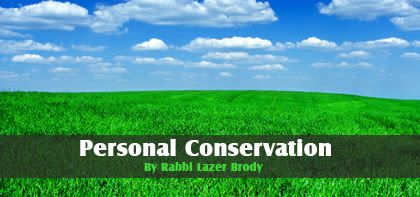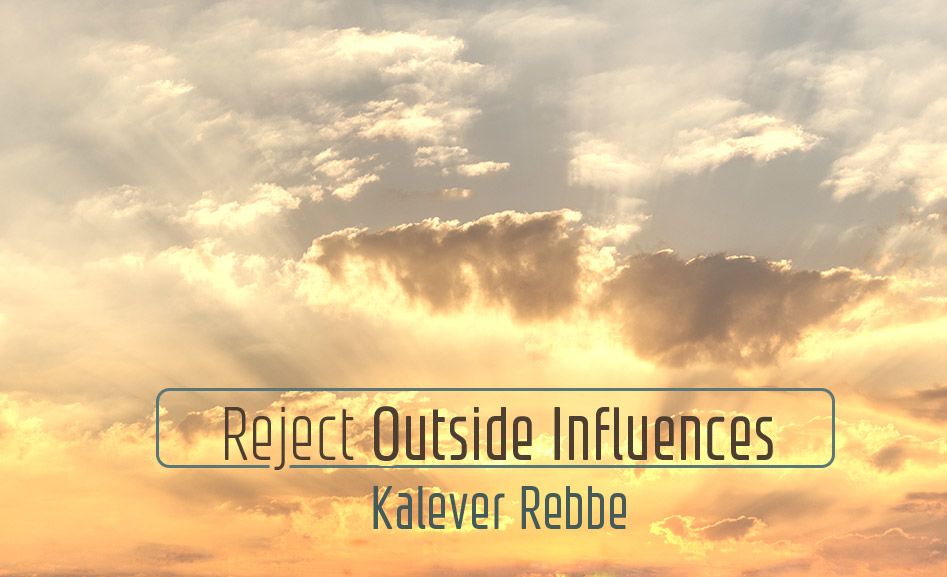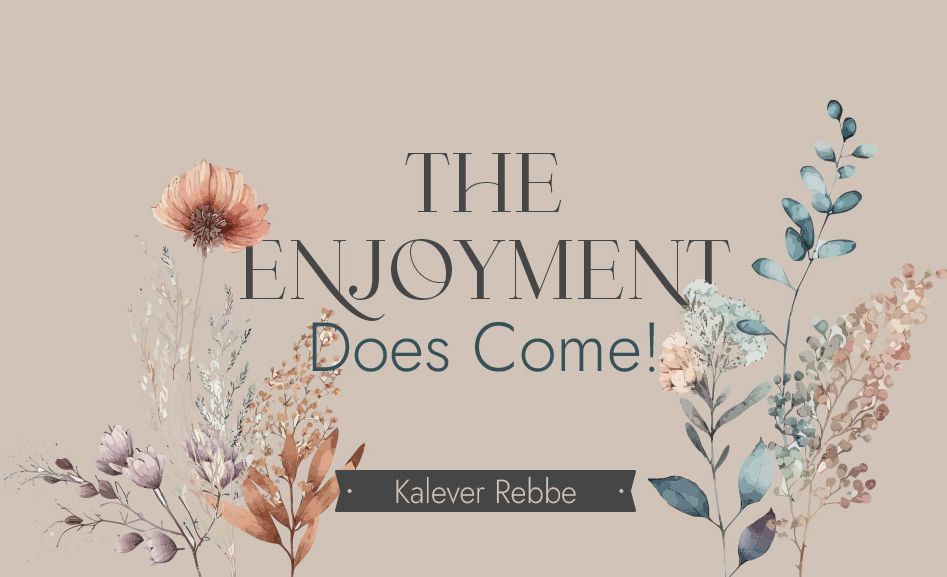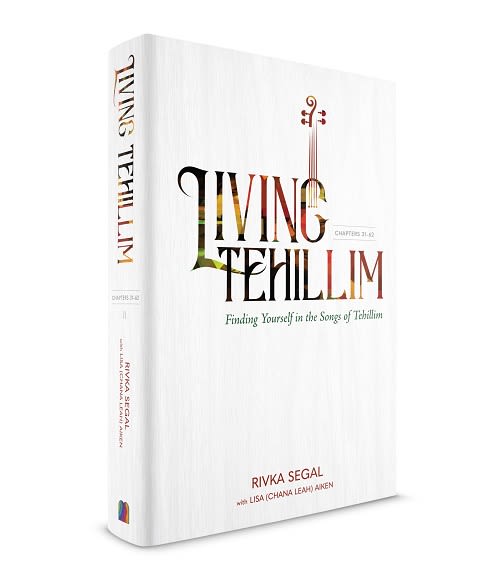
Personal Conservation
Man is a miniature world; just as conserving our natural resources is a vital priority today, we must each conserve or individual resources, on three particular levels…

Personal Conservation – A lesson in practical Kabbalah
Our forefather Abraham had a mind capacity and powers of reason that we can’t begin to fathom. He realized – through observing the universe – that there is a single solitary G-d who defies any corporeal characteristics or description. Through intense observation and deep thought, Abraham arrived at the conclusion that G-d manifests Himself in the physical realm by way of the ten spheres and the twenty-two letters of the Hebrew alphabet, what the Midrash and Zohar call the building blocks that were used to create the universe. Together, these are the “thirty two lanes” that our forefather Abraham refers to in the opening chapter of the Sefer Yetzira, the “Book of Creation”, history’s first Kabbalistic book[1].
The Sefer Yetzira talks about three dimensions of every Divine influence; they are olam, shana, and nefesh, or the dimensions of place, time, and body. In Chapter Four we learn the influences of several key letters. The letter Bet, for example, is the key influence of the planet Saturn (olam, place), Sabbath (shana, time), and the mouth (nefesh, body). The secrets in this tiny morsel are deep and vast. But from it, we learn how the mouth is especially connected to the Sabbath. We can now understand why speaking gossip and slander is seven times more devastating on Shabbat that it is during the week[2]. Also, eating on Shabbat is much more holy than it is during the rest of the week.
The message of olam, shana, and nefesh – place, time, and body – teaches us vital information about ourselves and how to properly utilize our resources. The Gemara teaches us that man is a miniature world. With that in mind, just as conserving the earth’s resources is vital to our sustenance, we must learn to  conserve our own resources. Now that we’re aware that Divine influences are manifest on three levels, we can do much to improve the quality of our lives.
conserve our own resources. Now that we’re aware that Divine influences are manifest on three levels, we can do much to improve the quality of our lives.
Hashem enables our souls to fulfill their specific mission also by giving us the three dimensions of influence – place, time, and body. These are the soul’s prime resources, which it must utilize effectively for a person to feel happy, fulfilled and successful. Consequently, when an individual squanders these vital resources, the soul suffers in the same manner that the entire world suffers when its natural resources are misused. Let’s see how this works on an individual level.
Olam – Place
One should always consult with a capable spiritual guide before moving or changing one’s place of employment or learning. Why? Just as each plant thrives on certain soil and in a certain location that provides optimal conditions for that plant’s growth, each soul thrives in its optimal place. Suppose you were sent to this world to heal people; you won’t thrive on a desert island living in solitude. But, if you were sent to this world to refrain from idle chatter, then a desert island is a great place to be.
Our olam is divided into our general place and our specific places. One’s general place is Brooklyn, for example, and his specific places might be his home, his place of employment, his place of personal prayer, and his place of learning and worship. Hashem sends this person influences of abundance in these four places.
How is one’s resource of olam squandered? If he is in a bar drinking beer rather than in his place of learning and worship studying Torah, he squanders Divine abundance and influence. Clearly, if he’s roaming around in a shopping mall when he should be at his place of employment, he’ll see an immediate loss of Divine abundance and influence in the form of a stiff reprimand from his employer, a fine, and maybe even the loss of his employment. We therefore must be careful about being at the right place in the right time.
Shana – Time
Conserving the priceless resource of our time is the easiest concept of olam, shana, nefesh to understand. Each of us has a predetermined allotment of time on this earth, depending on the nature of our task on earth and our needed soul correction.
If one systematically squanders time, he will not only fail to accomplish his mission on earth, but he won’t be happy, fulfilled, or successful. If a pre-Med student spends the night before final exams in a billiards parlor or in a discotheque instead of reviewing his organic chemistry notes and getting a good night’s rest, he seriously jeopardizes his chances of scoring high on the final exam and being accepted to medical school. His entire future is at stake because of one evening’s wasted time.
Woe to the children whose parents are playing around on Facebook or aimlessly surfing for hours on the web. Can they justifiably complain that they don’t have time to devote to family? Hashem has given them the time to devote to shalom bayit or raising wonderful children, but they’ve squandered it.
Imagine what it’s like in the Heavenly Court when a person finishes his 120 years on earth. The Heavenly Court demands why the person didn’t complete certain tasks that he was required to do, holding him accountable for every moment on earth. The hallmark of the great tzaddikim is therefore their utilization of time. It’s mind-boggling to think about what the Ariza’l and Rebbe Nachman of Breslev achieved in one lifetime, and neither lived to the age of forty. We therefore want to be especially careful about what we do with our time.
Nefesh – Body
The body is the housing of the soul. We must protect it and use it for the right purposes. For example, Hashem gives us a heart, whose task is to pump blood through a slim and healthy body for 120 years. If a person overeats and indulges in junk food – which are both detrimental to the health of the soul – his body will accumulate fat cells. The poor heart must now supply blood to these wasted areas of the body, which unlike the bones and the muscles, contribute little in performing mitzvot. To add insult to injury, the cholesterol and saturated fats of junk food will clog the arteries, cause a rise in blood pressure, and make the heart’s job of providing blood to the “dead-beat” fat deposits even more difficult.
Our prime consideration in utilizing nefesh should be the question of what’s good for nefesh rather than what’s comfortable, convenient, or tasty. A proper workout in the gym may be excruciating and uncomfortable, but the nefesh will thrive as a result.
Hashem gives us certain parts of nefesh to perform specific mitzvot, such as procreation and granting marital bliss. When these parts of nefesh are misused, the soul’s Divine abundance are virtually severed in many areas.
* * *
Practically, we should all strive to be our own personal conservation agencies, using the resources that Hashem gives us for the very best. Start with one resource, such as time, and ask Hashem for 90 days to help you take full advantage of this Divine gift. Wait and see how happy and successful you become. An awareness of olam, shana, nefesh can help a person lose weight when no other diet would help. It also helps us find our mission on earth, what my beloved rabbi and spiritual guide Rav Shalom Arush calls one’s track in life.
May Hashem help us all conserve and utilize the wonderful resources He gives us for the very best, amen!










Tell us what you think!
Thank you for your comment!
It will be published after approval by the Editor.